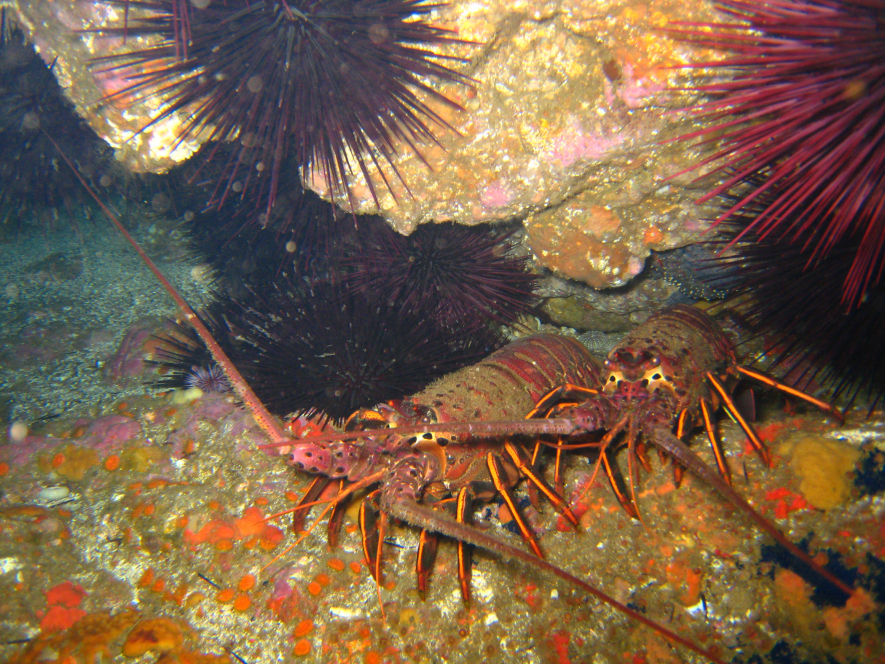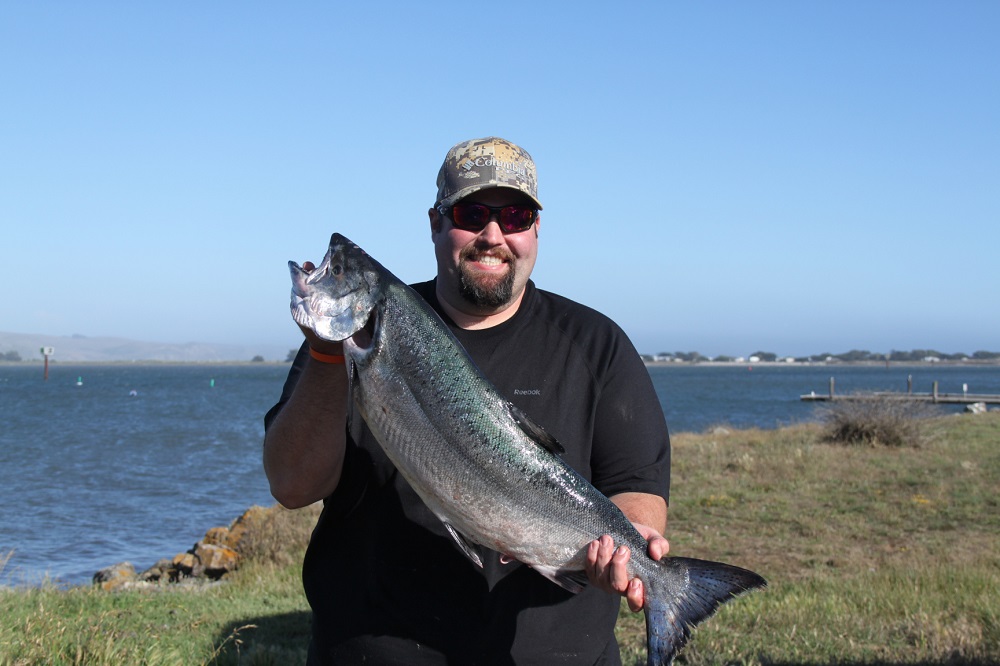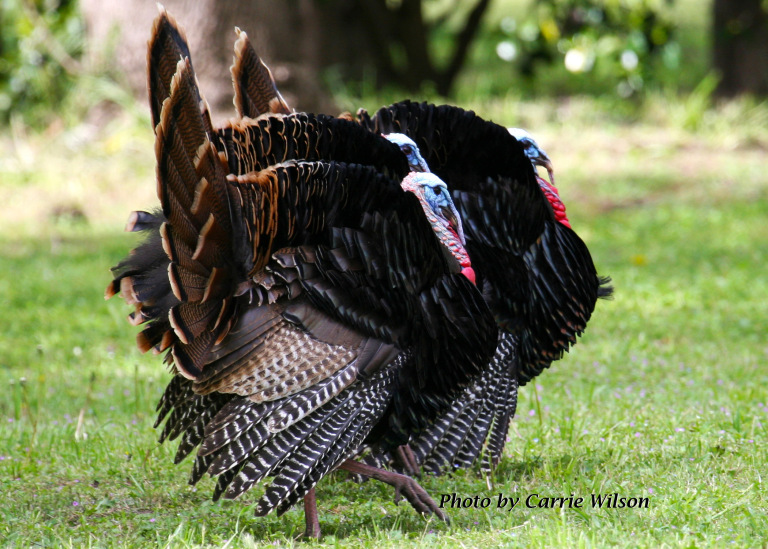Fish Report for 3-30-2017
Are Green Lobsters Safe to Eat?

by Carrie Wilson
3-30-2017
Website
Question: A buddy of mine got two lobsters in San Diego Bay right before the season closed. While he was cleaning them, he noticed green algae on their shells and then found the meat to be white, looking like it was already cooked. Both lobsters were still alive when detailing them. Have you heard any other stories like this? Would they have still been okay to cook and eat? (Ray C., San Diego)
Answer: When you find a lobster with algae on its shell (exoskeleton) it usually means it hasn’t molted in quite a while. This should be nothing to worry about, though. An animal getting ready to molt pulls salts out of its existing shell and creates a soft exoskeleton underneath that will expand with water and salts once the animal molts. Our best guess is that the old exoskeleton may have been overgrown and what your friend encountered (white, cooked-looking meat) could have been the new exoskeleton just under the old. As long as the animal was acting normally and was still alive before it was cooked, there was likely no problem with the meat.
One test seafood businesses use when cooking whole lobsters is whether they curl. The shell should turn to a darker red color and the tail tends to curl (not tightly, but it’s difficult to lay the animal flat). If there’s no curl, discard the animal.
Trapping opossums?
Question: My city neighbor is now renting a home and has taken it upon himself to trap local opossums and release them elsewhere. He says he is taking them to a county road (Dry Creek) but there is no way to verify this. We have lived in our home for 15 years and so we, along with our neighbors, are concerned. We have lived with the possums and raccoons for a lot of years without issues. This tenant intends to exterminate them. Is there anything we can do? (Tyler)
Answer: “All furbearing and nongame mammals that are legal to trap must be immediately euthanized or released” (California Code of Regulations Title 14, section 465.5(g)(1)). So it is not legal to transport opossums elsewhere for release. Possums should not be “relocated” from where they were trapped for many reasons, the most important being to prevent the spread of disease, and immediately releasing the opossums would not take care of the “pest” problem that your neighbor probably wants to solve. There are other options that you could inform your neighbor about though. “Keep me Wild” is a campaign that strives to limit conflicts between wild animals and humans. More information about how your neighbor can avoid problems with opossums may be found at the Keep Me Wild website.
Python skins to make leather goods?
Question: I’m a fashion designer located in New Jersey and I am looking to move my business to California. I’ve heard and read things about Python skin being illegal in California. I was looking for more information on this and whether this is 100 percent true? I currently make leather goods, but with exotic skins. (Michael S.)
Answer: Pythons are on the list of animals, or parts or products thereof, that are illegal to import into this state for commercial purposes, to possess with intent to sell, or to sell within the state (see California Penal Code, section 653o.) Prohibited species include: polar bears, leopards, ocelots, tigers, cheetahs, jaguars, sable antelope, wolves (Canis lupus), zebras, whales, cobras, pythons, sea turtles, colobus monkeys, kangaroos, vicunas, sea otters, free-roaming feral horses, dolphins or porpoises (Delphinidae), Spanish lynxes or elephants.
Fishing with kids and friends
Question: I am taking my daughter and a couple of friends and their dads on our boat this weekend. The girls are all under 16. I have a license but do all of the dads need them, too? Or, can I be the only adult angler? (Eric N.)
Answer: As long as the non-licensed adults on the boat do not assist in any way with fishing, they do not need to have a sport fishing license to ride along with you on your fishing trip. “Every person 16 years of age or older who takes any fish, reptile or amphibian for any purpose other than profit shall first obtain a valid license for that purpose and shall have that license on his or her person or in his or her immediate possession or where otherwise specifically required by law or regulation to be kept when engaged in carrying out any activity authorized by the license” (Fish and Game Code, section 7145).
Carrie Wilson is a marine environmental scientist with the California Department of Fish and Wildlife. While she cannot personally answer everyone’s questions, she will select a few to answer each week in this column. Please contact her at CalOutdoors@wildlife.ca.gov.
More Reports
Recreational ocean salmon fishery to open April 1

3-28-2017
California’s recreational salmon fishery will open in ocean waters on Saturday, April 1, 2017, from Horse Mountain (40° 05’ 00”...... Read More
When and where is nonlead ammunition required?

3-23-2017
Question: I have a question about airguns. With the new lead ban going into effect, can I still hunt turkeys with...... Read More

Website Hosting and Design provided by TECK.net